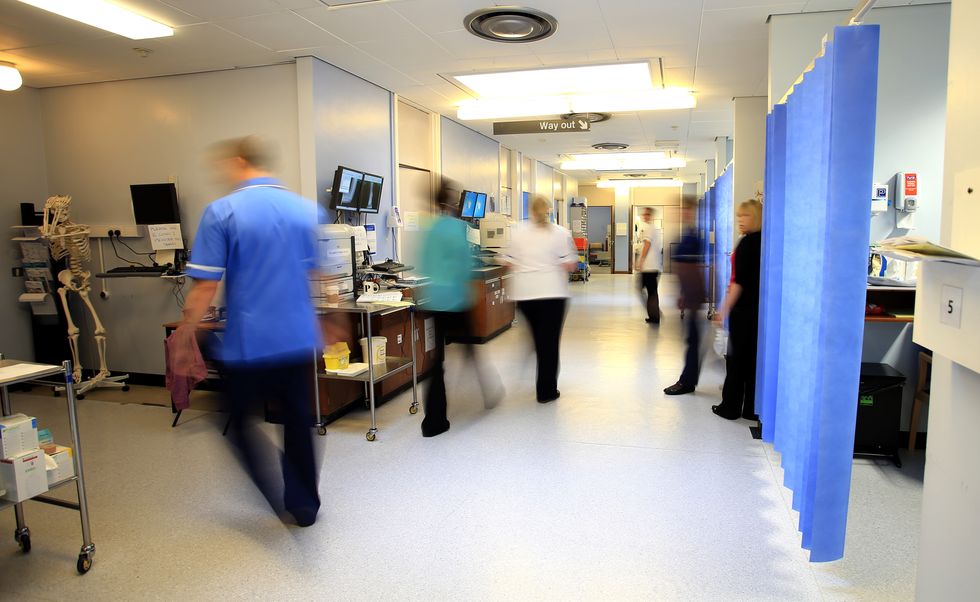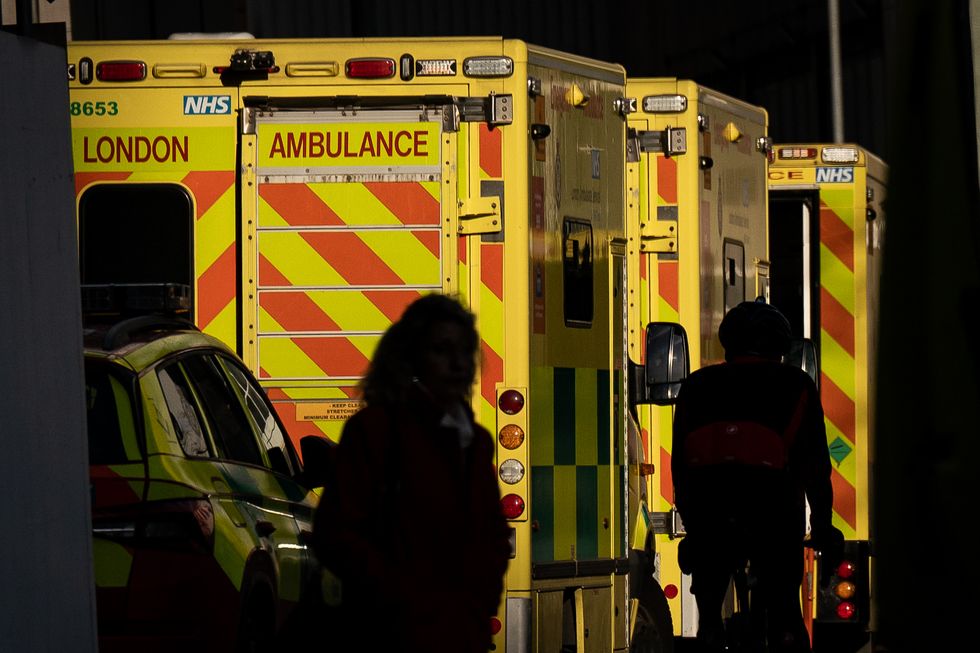NHS crisis: Pensioner dies after TWO DAY wait on A&E trolley - 'It was like a warzone'

Don't Miss
Most Read
Trending on GB News
A pensioner who developed a sudden chest infection over Christmas was left on an A&E trolley for two days before she died.
Ruth Tonks died in St John’s Hospital in Livingston, Scotland on January 2 after she was left without privacy for two days while a bed was being found.
Her son Karl, 51 who is an advanced nurse practitioner at a GP clinic in Fife, has since praised medical staff working in “war zone” conditions, adding that the pressure on the front line is worse than ever.
“There were patients everywhere, staff running around struggling," he told STV News.
“It was really busy in there. They actually looked psychologically tired.
“I knew it was going to be a nightmare in there. The only reason she got into the recess area rather than sitting outside in the back of an ambulance was because of how seriously unwell she was.”
Karl Tonks said medics were working in 'war zone' conditions
Victoria Jones
The family had recently celebrated the 86-year-old’s birthday and spent Christmas together before she became unwell.
She was diagnosed with chest infection and was prescribed antibiotics and steroids following a GP visit.
On December 28, she began struggling to breathe and was taken via an ambulance to St John’s Hospital where she waited on the hospital trolley for two days unable to sleep.
When medics realised she was dying, she was taken into a side room to give the family privacy in her last moments but were moved to make way for two newly admitted patients with infections.
The mum passed away in a “makeshift cubicle” with her children by her side.
Karl, who has worked in the NHS since the late 1980s said: “The staff were doing everything they could to give us some privacy to share time together, but there was nothing else they could do.
“It’s not what I would have wanted for mum, but I couldn’t ask the staff for anymore.”
The 51-year-old added that the sector has never seen so much strain as he recalled seeing 75 patients in an eight-hour shift and the reception was inundated with 400 calls in just two hours.
He said: “I have never seen the NHS in this mess. Back in the 1980s it was still not as bad as it is now. Covid was the final straw that broke the camel’s back.
“We’ve never experienced anything like that, we haven’t recovered from that and now we’ve got the flu going on. We’ve not had the chance to recover.
“You give the best care that you can, but you’re not giving the best care that you want to give – and that’s a big difference. You want to treat your patient the way you would have your own family treated.
The Scottish government is trying to tackle "severe" pressure on hospitals
Aaron Chown
“I thank staff with all my heart for what they did for my mum but they shouldn’t be working like this.”
Jacquie Campbell, chief officer of acute services at NHS Lothian, said: “We offer our sincere condolences to the family.
“Our emergency departments are currently under extreme pressure, but our teams are working tirelessly to increase capacity and improve patient flow through the hospital during one of the busiest times we have ever experienced.
“The unprecedented and prolonged levels of demand, which are being exacerbated by rising levels of Covid, flu and respiratory syncytial virus (RSV), continue to cause real challenges for both acute and community care.”
Health boards across Scotland have been ordered to review discharge plans to see if hospital patients can be sent home sooner as the NHS continues to come under “severe” pressure, Nicola Sturgeon said.
She added that the current pressures on the NHS “are having an adverse impact on too many” patients.












